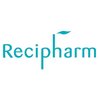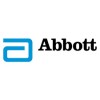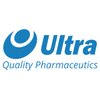Filter interviews by
Aalidhra Pharmachem Interview Questions and Answers
6 Interview questions
I possess strong problem-solving skills, attention to detail, and effective communication, which enhance my maintenance capabilities.
Problem-solving: I excel at diagnosing issues quickly, as demonstrated when I resolved a critical equipment failure in under an hour.
Attention to detail: My meticulous nature ensures that all maintenance tasks are completed to the highest standards, preventing future issues.
Effective...
Power consumption refers to the amount of electrical energy used by devices or systems over time.
Measured in watts (W), indicating the rate of energy use.
Higher power consumption can lead to increased electricity bills.
Examples include household appliances like refrigerators (100-800 W) and air conditioners (500-4000 W).
Power consumption can vary based on usage patterns and device efficiency.
Monitoring power consu...
QC focuses on testing the final product, while ADL focuses on testing the process and raw materials.
QC is done on finished products, while ADL is done on raw materials and process
QC is reactive, while ADL is proactive
QC is concerned with product quality, while ADL is concerned with process quality
QC is done by quality control department, while ADL is done by analytical development department
HPLC and GC are both analytical techniques used in chemistry, but they differ in the type of samples they can analyze.
HPLC stands for High Performance Liquid Chromatography, while GC stands for Gas Chromatography.
HPLC is used for analyzing samples that are soluble in liquid, while GC is used for analyzing samples that can be vaporized.
HPLC uses a liquid mobile phase and a solid stationary phase, while GC uses a ga...
The question covers various topics in organic chemistry including named reactions, NMR spectroscopy, and general concepts.
Named reactions are specific organic reactions that have been given a name to make them easier to remember and discuss. Examples include the Grignard reaction and the Diels-Alder reaction.
NMR spectroscopy is a technique used to determine the structure of organic molecules by analyzing their nuc...
Habber process is used to prepare ammonia by reacting nitrogen and hydrogen under high pressure and temperature.
The process was developed by Fritz Haber and Carl Bosch in early 20th century.
The reaction takes place in presence of iron catalyst.
The optimum conditions for the reaction are 200-300 atm pressure and 400-550°C temperature.
The reaction is exothermic and releases heat.
The produced ammonia is used as a fer...
Aalidhra Pharmachem Interview Experiences
7 interviews found
I applied via Referral and was interviewed in Sep 2023. There were 2 interview rounds.

(4 Questions)
- Q1. Utility related & HVAC related
- Q2. What is negavity What is work roll
- Q3. What is power consumption
- Ans.
Power consumption refers to the amount of electrical energy used by devices or systems over time.
Measured in watts (W), indicating the rate of energy use.
Higher power consumption can lead to increased electricity bills.
Examples include household appliances like refrigerators (100-800 W) and air conditioners (500-4000 W).
Power consumption can vary based on usage patterns and device efficiency.
Monitoring power consumptio...
- Q4. What is strength
- Ans.
I possess strong problem-solving skills, attention to detail, and effective communication, which enhance my maintenance capabilities.
Problem-solving: I excel at diagnosing issues quickly, as demonstrated when I resolved a critical equipment failure in under an hour.
Attention to detail: My meticulous nature ensures that all maintenance tasks are completed to the highest standards, preventing future issues.
Effective comm...
Interview Preparation Tips
(5 Questions)
- Q1. How to make 0.1N NaOH from 1N NaOH standard solution
- Ans.
To make 0.1N NaOH from 1N NaOH standard solution, dilute 10 mL of 1N NaOH with distilled water to a final volume of 100 mL.
Measure 10 mL of 1N NaOH solution
Transfer the measured solution to a 100 mL volumetric flask
Add distilled water to the flask until the volume reaches 100 mL
Mix the solution thoroughly to ensure uniformity
- Q2. What is the difference between HPLC and GC ?
- Ans.
HPLC and GC are both analytical techniques used in chemistry, but they differ in the type of samples they can analyze.
HPLC stands for High Performance Liquid Chromatography, while GC stands for Gas Chromatography.
HPLC is used for analyzing samples that are soluble in liquid, while GC is used for analyzing samples that can be vaporized.
HPLC uses a liquid mobile phase and a solid stationary phase, while GC uses a gas mob...
- Q3. What is difference between QC and ADL
- Ans.
QC focuses on testing the final product, while ADL focuses on testing the process and raw materials.
QC is done on finished products, while ADL is done on raw materials and process
QC is reactive, while ADL is proactive
QC is concerned with product quality, while ADL is concerned with process quality
QC is done by quality control department, while ADL is done by analytical development department
- Q4. Preparation of Ammonia by habber process
- Ans.
Habber process is used to prepare ammonia by reacting nitrogen and hydrogen under high pressure and temperature.
The process was developed by Fritz Haber and Carl Bosch in early 20th century.
The reaction takes place in presence of iron catalyst.
The optimum conditions for the reaction are 200-300 atm pressure and 400-550°C temperature.
The reaction is exothermic and releases heat.
The produced ammonia is used as a fertiliz...
- Q5. Tell me about your academic subject and some brief discussion on it.
Interview Preparation Tips
All the best.
I applied via Referral and was interviewed before Jul 2021. There were 2 interview rounds.
(4 Questions)
- Q1. What is you goal and what are you looking forward
- Ans.
I aim to enhance my QA skills, contribute to team success, and grow into a leadership role while ensuring high-quality software delivery.
Develop expertise in automation testing tools like Selenium and JUnit to improve testing efficiency.
Contribute to team projects by identifying and resolving bugs early in the development cycle.
Pursue certifications like ISTQB to validate my skills and knowledge in quality assurance.
Ai...
- Q2. What is your current position
- Q3. What are you like or dislike
- Ans.
I enjoy problem-solving and collaboration, but I dislike ambiguity and lack of communication in projects.
I like working in teams where ideas are shared openly, as it fosters creativity and innovation.
I enjoy the challenge of identifying bugs and finding solutions, which keeps my analytical skills sharp.
I dislike when project requirements are unclear, as it can lead to wasted time and effort.
I find it frustrating when c...
- Q4. What is your experience in other company
- Ans.
I have worked as a QA Engineer in various companies, focusing on automation, manual testing, and process improvement.
At Company A, I implemented automated testing using Selenium, reducing regression testing time by 40%.
In Company B, I led a team of testers to enhance the testing process, resulting in a 30% decrease in production bugs.
At Company C, I collaborated with developers to integrate continuous testing in the CI...
(3 Questions)
- Q1. Kxnsnsnsnz nxnsndnsd ds
- Q2. Bdnzndnsnd njznsnsnsbdnsn
- Q3. Jkznsns ndnsndns ksks snd
Interview Preparation Tips

(1 Question)
- Q1. When transformer oil is changed ??
Interview Preparation Tips
Interview Questionnaire
1 Question
- Q1. How many years experience you have??
Interview Questionnaire
2 Questions
- Q1. Name reaction with example and mechanism , NMR spectroscopy , basic and general organic chemistry
- Ans.
The question covers various topics in organic chemistry including named reactions, NMR spectroscopy, and general concepts.
Named reactions are specific organic reactions that have been given a name to make them easier to remember and discuss. Examples include the Grignard reaction and the Diels-Alder reaction.
NMR spectroscopy is a technique used to determine the structure of organic molecules by analyzing their nuclear ...
- Q2. Projects and social works
I applied via Recruitment Consultant and was interviewed in Mar 2020. There were 3 interview rounds.
Interview Questionnaire
4 Questions
- Q1. Projects ros organic chemistry basic questions
- Q2. Experience
- Q3. Why to leave previous job
- Ans.
I left my previous job to pursue new challenges and opportunities for growth in a more research-focused environment.
I was seeking a role that aligned more closely with my long-term career goals in research.
The previous position had limited opportunities for professional development.
I wanted to work in a more collaborative and innovative environment, which I found lacking in my last job.
For example, I was eager to engag...
- Q4. Expectations
Interview Preparation Tips
Top trending discussions






Interview questions from similar companies

I applied via Approached by Company and was interviewed before Dec 2022. There were 4 interview rounds.

Asked about cement plant operations & troubleshooting problems in your career.
(1 Question)
- Q1. Cement plant operation related
(1 Question)
- Q1. Personal introduction & salary negotiation

Interview Questionnaire
1 Question
- Q1. Company should co ordinate & co operate with all employees
Interview Preparation Tips

I applied via Company Website and was interviewed before Apr 2020. There were 5 interview rounds.
Interview Questionnaire
4 Questions
- Q1. I asked my questions to company so company want to deliver any pharma product on exact time
- Q2. Also discussed with management
- Q3. Management also provided me good support
- Q4. Management was put some target in front of me
Interview Preparation Tips
Aalidhra Pharmachem Interview FAQs
Tell us how to improve this page.
Aalidhra Pharmachem Interviews By Designations
Interview Questions for Popular Designations
Overall Interview Experience Rating
based on 1 interview experience
Interview Questions from Similar Companies
Aalidhra Pharmachem Reviews and Ratings
based on 42 reviews
Rating in categories
|
Production Chemist
29
salaries
| ₹1.5 L/yr - ₹3.5 L/yr |
|
Research Associate
22
salaries
| ₹1.7 L/yr - ₹2.8 L/yr |
|
QC Officer
15
salaries
| ₹2 L/yr - ₹2.9 L/yr |
|
Production Officer
9
salaries
| ₹2 L/yr - ₹3.5 L/yr |
|
Senior Research Scientist
7
salaries
| ₹5.4 L/yr - ₹7.7 L/yr |

Recipharm Pharmaservices

Abbott Nutrition International

Oceanic Pharmachem

Linux Laboratories
- Home >
- Interviews >
- Aalidhra Pharmachem Interview Questions











